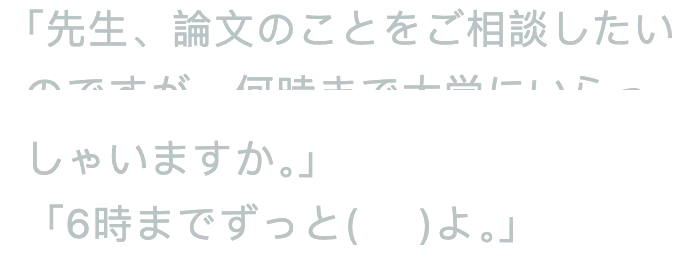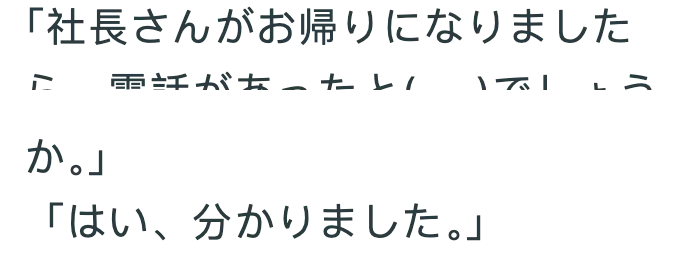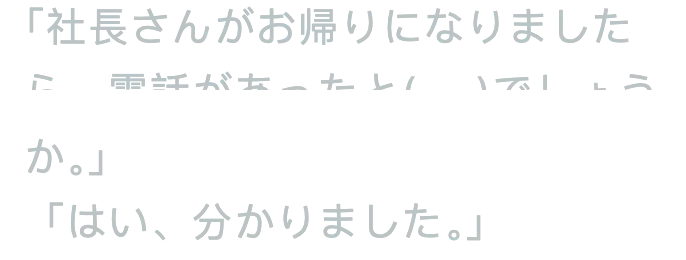31-0044 

31-0044 

- Teacher, I'd like to communicate with you about the paper. What time do you stay at school?
- I'm in until 6:00 oh.
- ずっと:All the time, usually followed by a continuous action or state. The question is about what a teacher says to a student, so there is no need to use respect for him or self-effacement.
- Arimasu: Cannot be used for people.
- Mairimasu: It is a self-effacing expression for "行く" and "来る".
- いらっしゃいます:It is the honorific for "行く", "来る", "いる".
32-0045 

32-0045 

- (in the study room) Teacher, can I borrow this book for next month?
- This question is about self-effacing language.
- "お/ご+动词连用形/三类动词词干+する」 expresses self-effacement, describing our behavioral actions in the form of self-effacement and indirectly showing respect for the other party.
- てよろしいですか:can ...... ? Indicates a request for permission from the other party.
- 借りさせて:请允许我...... When you want to ask for someone's permission, use "借りさせてください" or "借りさせていただきますか" (借りさせていただきますか) in the imperative tense.
- 借りられて:表示被动态和尊他,题目说是自己要借进的动作,与题意不符。
- お借りになって:「お/ご+动词连用形/三类动词词干+になる」Respect for the other person or a third person. An expression to honor him.
33-0046 

33-0046 

- When the president gets back, can you tell me I'm calling?
- Okay.
- お/ご+动词连用形/三类动词词干+いただけますでしょうか:Can you help me ...... ? A more respectful expression is "お+いただけないでしょうか".
34-0047 

34-0047 

- Where can I go for enrollment procedures? I'll call the person in charge now, please wait.
- This question is about honorifics.
- The action of waiting is done by the other party, so use the form of honoring him. "お待ちして」is a self-effacing use of "待たせて: please let me wait," which doesn't fit the meaning of the sentence.
- "お/ご+なさる", "お/ご+なさる".
- お/ご+なさる:Although it also expresses respect, it is seldom used in daily life and the level of respect is not as high as "お/ご+になる". Therefore, choose D.
35-0048 

35-0048 

- I don't know if it's to your liking, so please try it.
- お/ご+动词连用形/三类动词词干+ください:It is a honorific expression of "てください", please .......
- Agaru: A honorific expression for "食べる" and "飲む".










